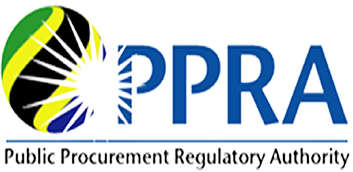The Public Procurement Regulatory Authority (PPRA) is a regulatory body established under the Public Procurement Act,2004 as repealed by the Public Procurement Act,2011.The Authority is charged with regulatory functions and vested with oversight powers and responsibilities on all public procurement activities carried by all public bodies in the mainland Tanzania.
Historically, in 2002 a Country Procurement Review Assessment was carried out to review the implementation of the Public Procurement Act No. 3 of 2001. The Country Procurement Review Assessment Report (CPAR) recommended further reforms from centralized to decentralized procurement system, hence the enactment of Public Procurement Act No. 21 of 2004.
The Public Procurement Act No. 21 of 2004 established a decentralized procurement system in which Ministries, Departments, Agencies and Local Government Authorities (LGAs) could carry out their procurement without any financial thresholds. In order to ensure that the Act is properly implemented, it established a Public Procurement Regulatory Authority (PPRA) charged with a task of ensuring that MDAs and LGAs adhere to the provisions of the Act.
OBJECTIVES
The objectives of PPRA as per Section 8 of the Public Procurement Act No.7 of 2011 are to:-
- Ensure the application of fair, competitive, transparent, non-discriminatory and value for money procurement standards and practices;
- Set standards for the public procurement systems in the United Republic of Tanzania;
- Monitor compliance of procuring entities; and
- Build, in collaboration with Public Procurement Policy Division and other relevant professional bodies, procurement capacity in the United Republic
FUNCTIONS
The functions of PPRA as per Section 9 of the Public Procurement Act No.7 of 2011 are as follows:
a)Advise Government, local government authorities and statutory bodies on procurement principles and practices;
b)Monitor and report on the performance of the public procurement systems in the United Republic of Tanzania and advise on desirable changes;
c)Prepare, update and issue authorized versions of the standardized tendering documents, procedural forms and any other attendant documents to procuring entities;
d)Ensure in collaboration with relevant professional bodies, that any deviation from the use of the standardized tendering documents, procedural forms and any other attendant documents is effected only after prior written approval of the Authority;
e)Issue guidelines under this Act;
f)Organize and maintain a system for the publication of data on public procurement opportunities, awards and any other information of public interest as may be determined by the Authority;
g)Conduct periodic inspections of the records and proceedings of the procuring entities to ensure full and correct application of this Act.
h)Monitor the award and implementation of public contracts with a view to ensuring that:
i. Such contracts are awarded impartially and on merit;
ii. The circumstances in which each contract is awarded or as the case may be, terminated, do not involve impropriety or irregularity;
iii. Without prejudice to the functions of any public body in relation to any contract, the implementation of each such contract conforms to the terms thereof.;
i)Institute:
i. Procurement audits during the tender preparatory process;
ii. Contract audits in the course of the execution of an awarded tender; and
iii. Performance audit after the completion of the contract in respect of any procurement as may be required;
j)Determine, develop, introduce, maintain and update related system to support public procurement by means of information and communication technologies including the use of public electronic procurement;
k)Agree on a list, which shall be reviewed annually of services and supplies in common use by more than one procuring entity which may be subject to common procurement;
l)Administer and enforce compliance with all the provisions of this Act, regulations and guidelines issued under this Act;
m)Undertake research and surveys nationally and internationally on procurement matters; and
n)Undertake any activity that may be necessary for the execution of its functions

